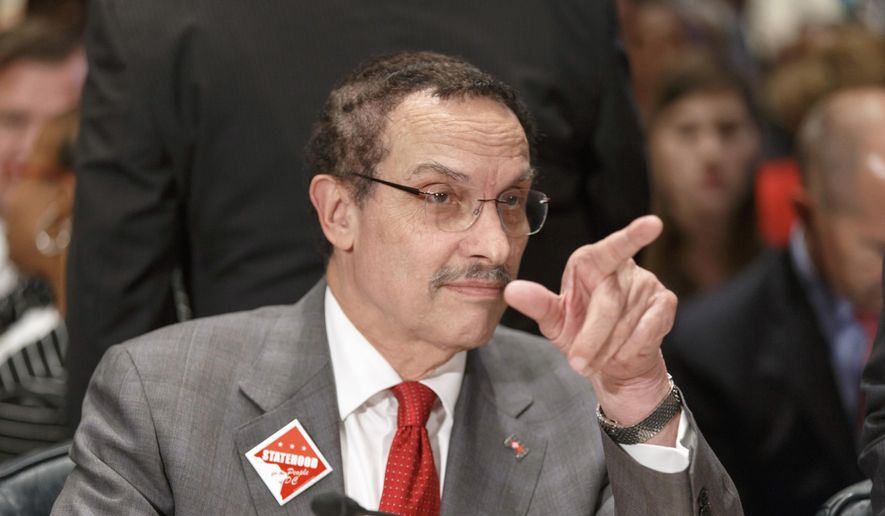D.C. Council member Vincent Gray wants to end a tax on health clubs that he had tried to kill in 2014, when he vetoed the city’s budget as mayor.
Commonly known as the “yoga tax,” the 5.75 percent levy is applied to sales at a “fitness club, fitness center, or gym the purpose of which is physical exercise,” as defined by the D.C. Office of Tax and Revenue. That definition includes for-profit programs at recreation centers, yoga studios, swim clubs and other facilities that offer any kind of physical exercise.
Opponents of the tax, such as Mr. Gray in 2014, say it makes the pursuit of health more expensive.
“Public policy should encourage public health,” the Ward 7 Democrat said Wednesday. “We should be incentivizing healthy behavior in the District of Columbia, not taxing it.”
Mr. Gray noted that gyms are sorely lacking in his ward, which contributes to public health problems east of the Anacostia River.
“Negative health indicators on the east end of the city, including obesity, diabetes, heart disease, hypertension and cancer can all be improved through regular exercise,” he said.
The former mayor also wants to find other ways to incentivize health clubs to open in Wards 7 and 8, including the possibility of a tax credit for those businesses.
Council member Jack Evans, the Ward 2 Democrat who opposed the tax in 2014, has signed on to co-sponsor Mr. Gray’s proposed repeal of the yoga tax.
Evans spokesman Tom Lipinsky said that the tax often was characterized during debate in 2014 as affecting only residents with income to spend on yoga and other health services. But it also raises the costs for lower income residents seeking to get fit, he said.
“In reality what we’re taxing is access to fitness,” Mr. Lapinski said. “If a tax like that affects whether a gym decides to open in Ward 7 or 8, then that’s a big deal.”
The tax was enacted as part of the $12.64 billion fiscal 2015 budget that D.C. lawmakers approved in June 2014. Several council members — including Mr. Evans and now-Mayor Muriel Bowser, who represented Ward 4 at that time — tried but failed to pass an amendment that would have stripped the yoga tax from the budget.
A spokesman for Miss Bowser did not return an email seeking comment.
The tax was predicted to generate about $5 million a year and partially offset a package of tax cuts proposed by council Chairman Phil Mendelson.
As a lame-duck mayor, Mr. Gray vetoed the entire budget, but the council overrode his veto in a 12-1 vote. Only Tommy Wells, then the lame-duck representative for Ward 6, voted to sustain Mr. Gray’s veto.
The council’s members have changed significantly since then, so it’s difficult to gauge support for Mr. Gray’s repeal proposal. Only six lawmakers from 2014 remain, and of those members, only Mr. Evans voted to strip the yoga tax from the budget.
Mr. Mendelson and fellow Democrats Mary Cheh (Ward 3), Anita Bonds (at-large), and Kenyan McDuffie (Ward 5), voted with at-large independent member David Grosso to keep the tax in the budget.
Mendelson spokeswoman Lindsey Walton said the chairman is committed to the tax package that was passed by the council in 2014.
“Any changes to the current package would require new revenue or cuts to existing government programs,” Ms. Walton said.
• Ryan M. McDermott can be reached at rmcdermott@washingtontimes.com.




Please read our comment policy before commenting.